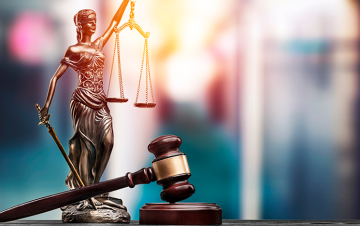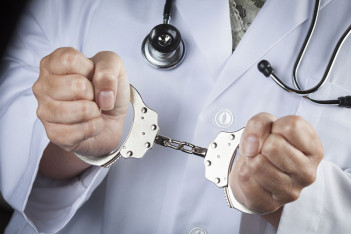Lawyer with 15 years of legal experience, specialization: family and civil law, inheritance, contract law, criminal cases, administrative cases, cases involving foreigners, migration law
Trial in criminal cases is an important component of justice, which is aimed at establishing the truth and guilt, as well as ensuring a fair sentence. The criminal trial is a complex and important stage in the administration of justice. It includes a number of stages, from investigation to sentencing, each of which has its own peculiarities and procedures. Let's have a closer look at each of the stages.
Investigation of a crime
The first stage of the criminal process is the investigation of a crime. It is conducted by law enforcement agencies to collect evidence and establish the circumstances of the crime. Police and law enforcement agencies collect evidence, conduct investigative actions and arrest suspects. The role of a lawyer at this stage is to provide legal defence to the suspect or accused, guaranteeing their rights during the investigation. During this stage, evidence is collected, criminal proceedings are initiated and suspects are detained.
Prosecution
Upon completion of the investigation, law enforcement agencies draw up an indictment and bring the case to court. The lawyer protects the interests of his client at this stage, helping him to understand the charges and prepare for the trial.
Preparing for the trial
After the investigation is completed, the indictment is submitted to the court. At this stage, preparations for the trial take place, including drafting the indictment and preparing evidence. Lawyers and attorneys prepare to defend the defendants and defend their rights in court.
Court hearing
A court hearing is a key moment in the criminal process, during which a case is heard before judges (in some cases, a jury). A criminal trial involves a series of hearings and hearings during which the parties present their arguments and evidence. A lawyer provides legal representation of his or her client in court, protecting his or her rights and interests during the examination of witnesses, substantiating the client's position and asking questions of the participants in the trial. Protection of dignity, lifting of arrest, analysis.
The verdict
After reviewing all the circumstances of the case, the court passes its verdict. It may be a conviction or acquittal, depending on the evidence and circumstances of the case. The role of a lawyer is to prepare for an appeal against the verdict if it is considered unfair or unlawful.
The appeal process
If one of the parties is dissatisfied with the court's verdict, they may appeal against it to the court of appeal. Attorneys prepare appeals and represent their clients in this process, and continue to defend their client's interests during the appeal process, arguing that the verdict is unlawful and requesting its review. The Court of Appeal reviews the evidence and arguments of the parties to correct any errors or irregularities.
Criminal litigation is a complex and important process in which each stage plays an important role in ensuring a fair decision. The role of a lawyer in this process is to protect the rights of the defendant and ensure a fair trial.
































